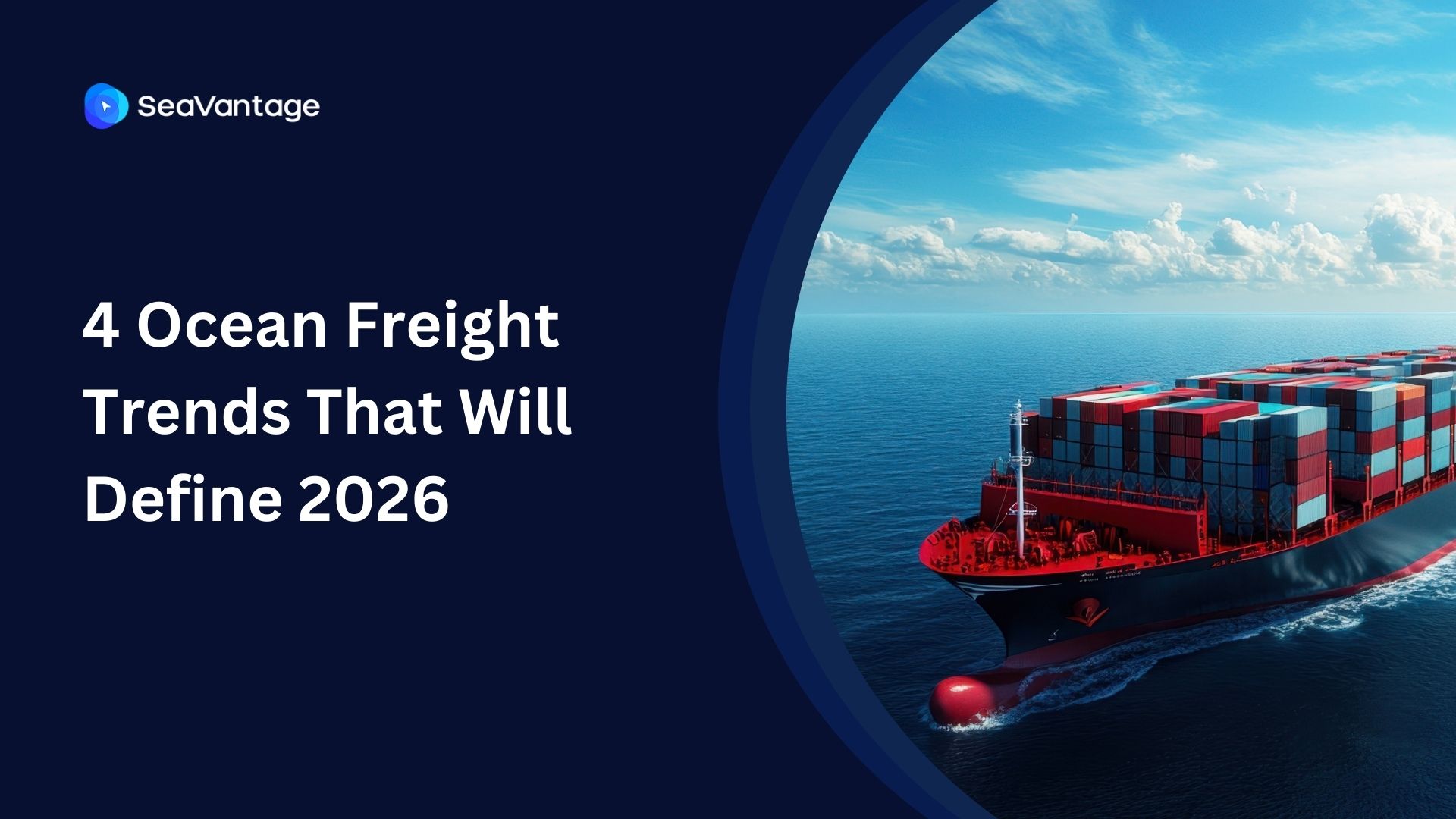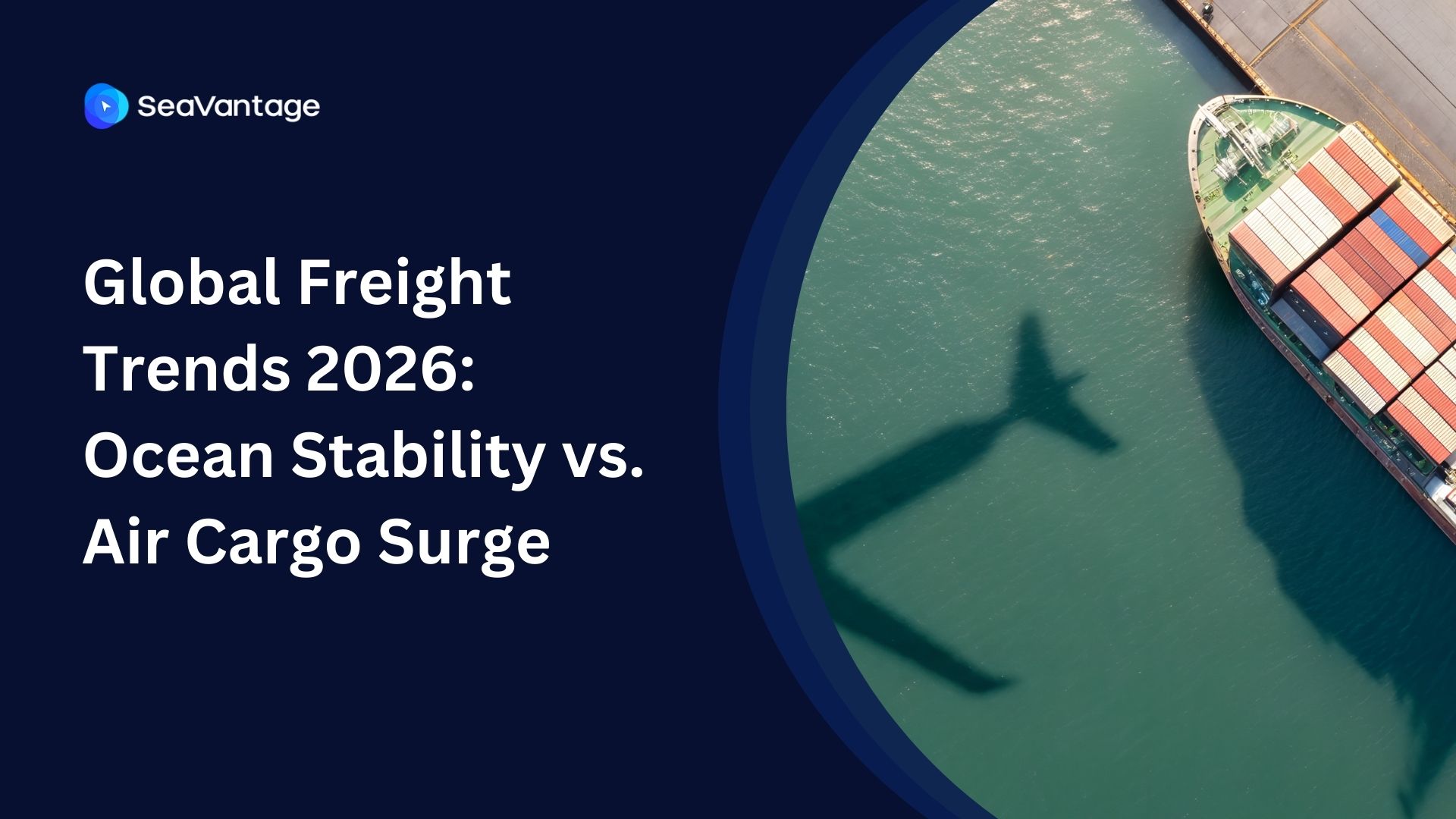Navigating the Unseen: Panama Drought Crises, Israel-Hamas Conflict, Black Sea Port Disruptions
When it comes to managing complex supply chains, you've probably heard the old saying, "You can't manage what you can't see." In today's ever-changing world, this wisdom holds truer than ever. From geopolitical tensions to climate change, and congested ports, knowing what's happening and where is the key to effective management and communication with stakeholders.
Although 2023 has been marked by a slowdown in freight in the shipping sector, it is continuing to face various disruptive incidents. Left unmonitored, these disruptions could worsen the existing challenges faced by stakeholders in the midst of the ongoing freight recession.
Here's what you need to see and monitor right now:
The Panama Canal Drought Crisis
The Panama Canal authorities have recently announced additional cuts to vessel traffic through the canal due to the ongoing drought plaguing the region. These recent water conservation efforts have significantly reduced daily crossings, affecting daily sailings and creating a bottleneck of vessels waiting to cross the canal. Typically, about 35 vessels pass through the canal every day. However, authorities have announced their plan to reduce daily sailings to 18 ships per day by February 2024.
Stay Updated with SeaVantage Port Insight's Live Monitoring
The Israel-Hamas Conflict
While the ongoing conflict between Israel and Hamas has yet to severely impact global supply chains, the conflict could pose additional risks if it continues to drag on. The situation remains uncertain as the Israeli ports of Ashdod and Haifa account for only 0.4% of global container throughput. The port of Ashkelon, located about 10km from the northern border of the Gaza Strip, is currently closed. There are increased waiting times at the port of Ashdod due to heightened security checks and a shortage of labor.
Stay Informed with SeaVantage Port Insight’s Live Monitoring
Black Sea Port Disruptions
The prolonged conflict between Russia and Ukraine continues to disrupt commercial vessel movement in the Black Sea region. Over 600 days have passed since the beginning of the Russian-Ukraine war. More recently, Russia once again targeted the Black Sea port of Odessa, and both Russia and Ukraine have warned of attacks on commercial vessels heading to the region. These heightened threats of attacks on vessels from both sides could further exacerbate the challenges faced by vessels navigating the region.
In navigating today's complex supply chain landscape, staying informed is not just a best practice – it's a necessity. The adage "You can't manage what you can't see" has never rung truer, especially considering the challenges faced in the shipping sector amid the ongoing freight recession. The recent Panama Canal drought crisis, the Israel-Hamas conflict's potential impact, and the persistent disruptions in the Black Sea region highlight the critical importance of real-time monitoring. With SeaVantage Port Insight's live monitoring, staying updated on these developments is your proactive strategy to anticipate and navigate the ever-evolving challenges in the global supply chain.
What is SeaVantage Port Insight?
SeaVantage's Port Insight Data provides end-users like you with access to real-time metrics and a live congestion map concerning vessel traffic at ports worldwide. The underlying system integrates multiple different data sources, mostly proprietary, into one single and consistent system to predict and visualize vessel activity and congestion in real-time.
It provides users with both historical and real-time information about port performance and activity. The insights from this dashboard include predicted incoming vessel traffic, anchorage insights, and berthing insights for the port, specific terminals, or ship types.

Advantages of SeaVantage Port Insight
Port Insight enables users to optimize route planning and scheduling, make informed decisions about prioritizing ports, and dynamically adjust schedules as needed.
● Efficient planning
● Reduced delays and costs
● Improves resource allocation
● Enhanced customer service
● Risk mitigation
Try it out on SVMP
2025년 9월, 주요 글로벌 항만에서 어떤 운송사가 가장 긴 선박 체류 시간을 기록했는지 확인해보세요. 트렌드를 비교하고, 지연을 파악하며, 전체 항만 데이터를 통해 운송 전략을 최적화할 수 있습니다.
2025년 8월, 주요 글로벌 항만에서 어떤 운송사가 가장 긴 선박 체류 시간을 기록했는지 확인해보세요. 트렌드를 비교하고, 지연을 파악하며, 전체 항만 데이터를 통해 운송 전략을 최적화할 수 있습니다.
2025년 7월, 주요 글로벌 항만에서 어떤 운송사가 가장 긴 선박 체류 시간을 기록했는지 확인해보세요. 트렌드를 비교하고, 지연을 파악하며, 전체 항만 데이터를 통해 운송 전략을 최적화할 수 있습니다.
iscover the 4 critical ocean freight trends for 2026, from the Red Sea reopening and fleet overcapacity to shifting global trade maps. Prepare your supply chain now.
Discover key 2026 freight market trends: Port of Houston expansion, air cargo "super peak," and ocean freight stability. Plan your supply chain with SeaVantage.
Explore November 2025 global port dwell time data. See which ports and carriers led in efficiency across Antwerp, Busan, Long Beach, Rotterdam, and Singapore.



.svg)





.jpg)

.png)